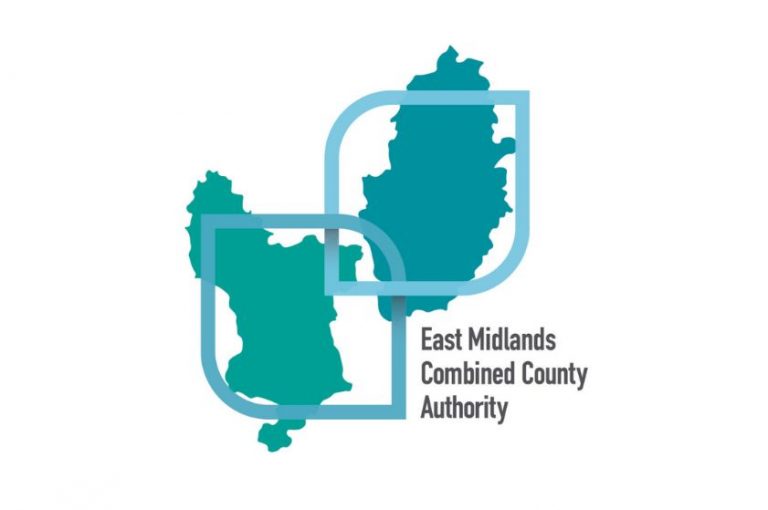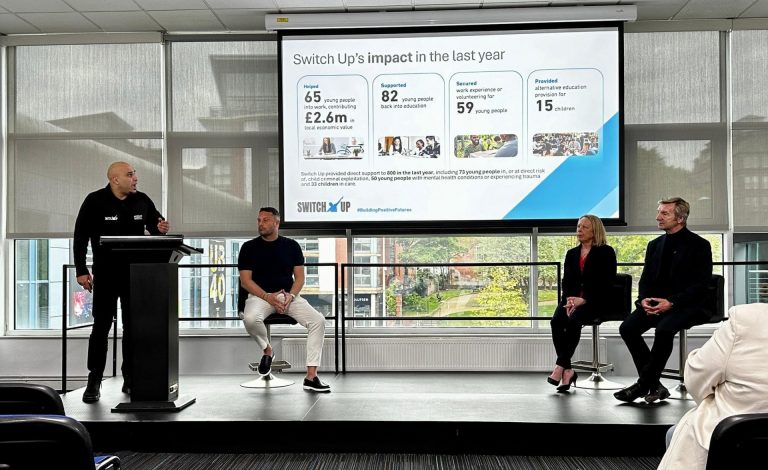Contractors working on Hinckley’s Big Pit site warned to clear mud from road or face criminal sanctions
Derbyshire logistics businesses snapped up by Preston firm
Glowfrog supports Derby Museums renovation project
Personal Tax changes coming in from 6 April 2024 – are you ready for them? By Jennie Brown, tax partner at Streets Chartered Accountants
Marketing firms join forces in Chesterfield
Contractor fined after young carpenter dies
Access to capital is top challenge for mid-sized businesses
First East Midlands Combined County Authority Mayor elected
FIFA partnership with Loughborough University paves way for turf testing
A partnership involving Loughborough University and football’s governing body is hoped to improve the durability, safety and performance of artificial pitches.
High-tech Lincolnshire agricultural initiatives win financial backing from Government
Two high-tech agricultural businesses in Lincolnshire have been offered funding from a national £7.5 million pot to support innovation and growth.
83% of all website customers did this before buying…
High street records fifth month of negative in-store sales
MEC’s acoustic team bolstered with new associate
Council successful in purchase of former B&M site as part of major transformation plans
New East Midlands legal firm hopes to break the mould
Campaign launched by Nottinghamshire charity to build new community facility
A Nottinghamshire-based charity has launched its campaign to build a new facility in the city with a series of significant donations from local organisations.
The Marcellus Baz Foundation – which encompasses Switch Up and the Nottingham School of Boxing – announced its plans for a new building which will combine its community services at a launch event featuring long-time charity patrons Torvill and Dean.
The foundation’s current rented space is suffering from mould and damp, and recently had a portion of its ceiling collapse, rendering it unfit for purpose.
The campaign – named #BuildingPositiveFutures – initially hopes to raise £550,000 to unlock further funding, which will help towards the £4.15m build cost for the proposed new facility.
Fundraising was kickstarted on the night by a £100,000 donation from BNA Charitable Incorporated Organisation, and £50,000 from Experian, which organised the launch event hosted by Switch Up patron Darren Fletcher.
The TNT Sport broadcaster quizzed the duo on their legendary partnership ahead of the 40th anniversary of their gold medal-winning performance of Bolero at the Winter Olympics in Sarajevo.
The pair also spoke at length about their passion for supporting the charity, having been involved as patrons for nearly a decade.
Dean said: “Switch Up has created an environment that is a real family and gives purpose to children and young people who could very easily go off the rails if it wasn’t there. It’s a true community which was initially built around the boxing gym but is now so much more.”
Speaking as the campaign for the new building was announced, Marcellus Baz thanked the patrons for their support, and welcomed pledges from the audience in the room to kickstart the fundraising.
“Switch Up works on a five-pillar system which combines mentoring, education, employability and counselling with physical activity,” he said. “We give people the opportunities and lifelines that they need – we’re the last line stopping people from being imprisoned, committing serious crimes, carrying knives, getting involved in gangs or being radicalised.
“To do this, we need to have a sanctuary where children and young people can come and feel safe, secure and feel able to engage – we don’t have that at the moment. This new building will be that sanctuary, but we can only get there with everyone’s help.
“We’re asking people to pledge a donation, in-kind support or even just sharing the need and the opportunity with their network.”
Paul Simpson, trustee of BNA, said: “Switch Up is already making an incredible contribution to the communities in Nottingham and Mansfield. When we looked at the history behind Switch Up and the work that Marcellus Baz and his team have done to help prevent crime, improve behaviour at schools, help youngsters with their education and work with partners to help them find employment, we were very excited about the new Community Hub project in Nottingham.
“Having the new premises and resources will enable the Switch Up team to continue helping Nottingham’s children and young adults to develop and improve their mental and physical health and wellbeing. Having that direction will help the young people to build their self-confidence and pride through achievement.”
Richard Donovan, head of corporate responsibility at Experian, said: “The services provided by Switch Up in Nottingham are needed now, more than ever. As a local employer, Experian believes in the importance of helping people in Nottingham realise their potential and we are excited to see the opportunity to help larger numbers of young people that the new community hub will bring.”
To support the campaign, please visit justgiving.com/campaign/buildingpositivefutures
Appointment sees 3RS IT Solutions welcome one of the UK’s youngest company directors to its Board
Final designs revealed for Leicester railway station revamp


NAHL hails “solid financial performance”
James Saralis, CEO of NAHL, said: “I am pleased with the solid financial performance that the Group delivered in 2023 and am encouraged that we continued to outperform the market in both Consumer Legal Services and Critical Care while further reducing net debt and building a more sustainable business.
“I would like to take this opportunity to thank our fantastic team for their continued hard work and commitment, driving our success.
“We demonstrated further improvements in our Personal injury business, which was again profitable and cash generative, and delivered double digit growth in Critical Care. These strong results position us well to maintain our growth and realise the step-change that we have been working towards as our own fully integrated law firm, NAL, matures.
“Building on our strong foundations and proven ability to navigate market conditions, the Board is confident in delivering the growth in profits and reduction in net debt in line with 2024 market expectations.”
In April 2024, the company announced it is evaluating a possible sale of Bush & Co.
Local law firm makes quartet of promotions
Local law firm Hegarty has promoted four team members. Now in its 50th anniversary year the firm, which has offices in Peterborough, Market Deeping, Stamford and Oakham, has further expansion plans.
Sarah Martin works in the Residential Conveyancing team at the Hegarty Market Deeping office and has been promoted to partner. Sarah is a CILEX practitioner and has been with the firm since 2012. Sarah deals with all aspects of residential conveyancing including freehold and leasehold sales and purchases, transfers of equity, remortgages and shared ownership transactions.
Sarah said: “I am pleased to have received this promotion and am grateful to the partners for this opportunity. I’m now looking forward to assisting in the growth and development of the firm.”
Chris Brown, head of the Family Law team at Hegarty also becomes a partner, having joined the firm in 2012. A Resolution accredited family lawyer, Chris specialises in advising clients in respect of the division of assets when their marriage breaks down. Chris also recently qualified as a collaborative family lawyer, which is a non-adversarial, solution-focussed approach to dealing with issues on divorce or separation.
Chris remarked: “I am extremely proud to be a partner of a firm with such a great local reputation and I am excited to embrace the challenges that this next stage of my career will bring.”
In addition to partner promotions, Rachael Griffiths and Tom Moore at the firm have also been promoted to associate.
Rachael began working for Hegarty after moving to Peterborough in April 2022 as a chartered legal executive in the Wills, Trusts and Probate team. Rachael deals with a variety of cases including Wills, Lasting Powers of Attorney, Deputyship Orders, and all aspects of estate administration, as well as assisting clients with Inheritance Tax planning and protection against care fees.
Rachael said: “I am very grateful to have my contributions to the firm recognised and am looking forward to continuing my work in an area of law that I love, knowing that the partners and my colleagues at the firm will continue to provide me with their support and encouragement.”
Tom joined Hegarty in 2022 as the firm’s Tax, Trust and Estate Planning specialist following 15 years working for local and national accountancy firms. His expertise is with private client matters, including high net worth individuals, trusts and estates; covering income tax, capital gains tax and inheritance tax, both the compliance and planning aspects.
Remarking on the promotions, Kally Singh, senior partner, said: “I’m pleased to announce the promotion of four of our talented team members. Hegarty is proud of its reputation for excellence and we strive to support our team in their development throughout their careers. These promotions recognise our team members’ contributions to the firm and their focus and vision for delivering excellent client care.
“We value team members who share in our vision for the firm, and we are passionate about developing our team’s professional skills and helping them achieve their career aims. We value the contribution each member of our team makes, and I am sure they will continue their significant contribution to the firm.
“We have ambitious growth plans this year as we mark our 50th anniversary, with a new office planned to open in Bourne in the Autumn and plans to further expand our team. We would be delighted to hear from legal professionals looking for a rewarding and challenging firm to make their next career move.”




















